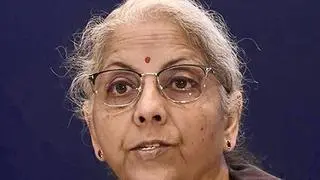In what could be seen as a new political tussle between the Centre and the States on GST compensation, KK Venugopal, Attorney General of India has opined that levying of compensation cess beyond June 30, 2022, would require a decision by a three-fourth majority of the weighted votes at the GST Council.
This is part of second set of opinion sent by the AG on August 26, a day before the meeting of GST Council. According to sources, Venugopal said that since all the States are represented in the GST Council, “this (extending period of composition cess) can only be achieved if the requisite number of States support such a recommendation.”
Such a consensus is critical at a time when the Centre has proposed options of borrowing by States to meet the compensation shortfall. In one option, both principal and interests are to be repaid by extending collection of compensation cess beyond the transition date of June 30, 2022. While in the second option only the principal is to be repaid by the said means. The non-NDA States are not in favour of either of the options and are pushing for the Centre to borrow funds to make up for the shortfall.
Compensation cess
Compensation cess is levied on items such as new motor cars, aerated drinks, pan masala and tobacco and manufactured tobacco substitutes, including tobacco products, besides coal, briquettes, and similar solid fuels manufactured from coal, lignite whether or not agglomerated, excluding jet, peat etc. Rates vary from products to products.
The AG explained the reason to permit an extension in the duration of the levy and collection of the cess. “This would necessarily imply that where, on account of extraordinary circumstances causing a steep fall in GST revenues and a shortfall in the Fund, the States cannot be paid full compensation during the transition period, the shortfall in the payment of compensation could be made up even after the transition period of 5 years,” the country’s top law officer said.
Venugopal noted serious downturn in GST revenues for both the Centre and States on account of Covid. As a result, the balance in the GST Compensation Fund is inadequate to pay full compensation to the States, he observed. Now, there are two provisions to deal with this situation. First is any special rate or rates for a specified period to raise additional resources during any natural calamity or disaster and second is using unutilised fund in the Compensation Fund. Increase in rates is not possible at this moment and the surplus in the Compensation Fund has already been distributed to States.
Continuing cess
So, there is a third option: the GST Council would recommend the continuance of the cess beyond the transition period of five years only in a situation of shortfall during the transition period, which would necessitate the raising of funds for paying the compensation after the five -year period is over,” said Venugopal, while giving details of modalities to be adopted.
The Centre estimates a shortfall of ₹3 lakh crore in GST collection, out of which ₹65,000 crore is expected to be bridged by Compensation Cess collection. For the remaining ₹2.35 lakh crore, debates are on as to who will borrow.








Comments
Comments have to be in English, and in full sentences. They cannot be abusive or personal. Please abide by our community guidelines for posting your comments.
We have migrated to a new commenting platform. If you are already a registered user of TheHindu Businessline and logged in, you may continue to engage with our articles. If you do not have an account please register and login to post comments. Users can access their older comments by logging into their accounts on Vuukle.